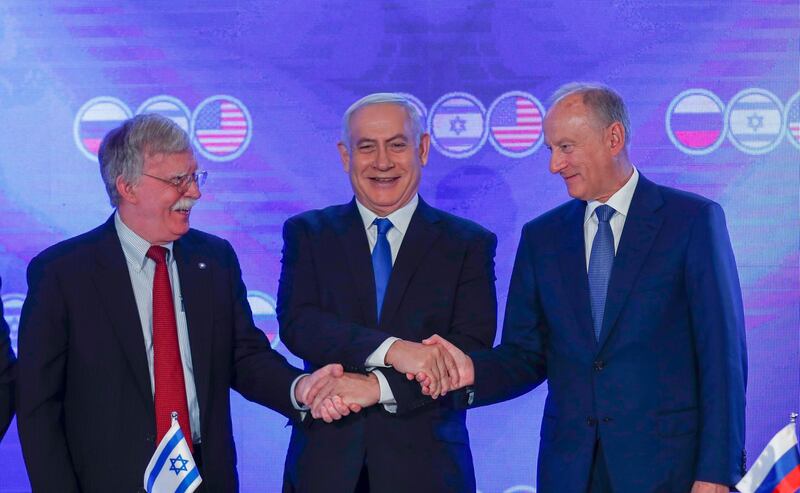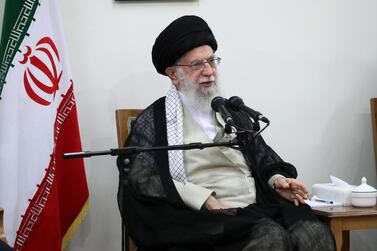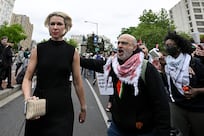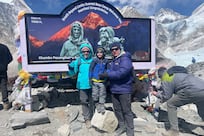The door to negotiations between the US and Iran are still open, US National Security Adviser John Bolton said at an unprecedented trilateral meeting with top security officials from Israel and Russia on Tuesday.
Meeting in Jerusalem this week, the three countries discussed a “wider basis for co-operation" over Iran and Syria, according to Israeli Prime Minister Benjamin Netanyahu.
The summit coincides with the controversial US-led economic summit in Bahrain, part of US President Donald Trump’s much-maligned plan to resolve the Palestinian-Israeli conflict. It also comes amid heightened tension between the US and Iran following six tanker attacks in the Gulf of Oman and the downing of a US drone.
Mr Bolton said that the US president "has held the door open to real negotiations” with Iran but the leadership’s response has been “deafening silence".
“They’ll (Iran) either get the point or … we will simply enhance the maximum pressure campaign further,” Mr Bolton told reporters on Tuesday following the summit.
“It will be, I think, the combination of sanctions and other pressure that does bring Iran to the table.”
Israeli Prime Minister Benjamin Netanyahu spoke at the second day of the summit between the three national security advisers: Russian Nikolai Patrushev, Israeli Meir Ben-Shabbat and Mr Bolton.
“As I’ve said many times, Israel’s relations with the United States of America has reached new heights under President Donald Trump’s leadership,” Mr Netanyahu said. “Equally, Israel is grateful that our friendship with Russia has got stronger – stronger than ever in recent years.”
Mr Netanyahu also emphasised the three country's shared goal of the departure from Syria of "all foreign forces who entered after 2011”.
Mr Patruchev of Russia, an ally of both Iran and the Syrian regime, said recently that “Iran is in Syria at the invitation of the legitimate government and is actively involved in fighting terrorism".
He also contradicted US claims that their drone, which was shot down by Iran last week, leading the US to launch an air strike that was called off at the last minute, was in international airspace.
“I have information from the defence ministry of the Russian Federation that this drone was in Iranian airspace," Russian news agencies quoted Mr Patrushev as saying at a briefing on Tuesday.
Mr Bolton, meanwhile, reiterated the US assessment that the drone was not in Iranian airspace.
Mr Netanyahu and Mr Trump are aligned with a hawkish approach to restraining Iran’s regional activities, nuclear energy and possible weapons capabilities. The recent tensions have drawn the US closer to Israel, Saudi Arabia and other Gulf countries.
Naysan Rafati, Iran analyst for International Crisis Group, told The National that the summit is an "important marker" for Mr Netanyahu and that "Israel is a key player" over Syria.
While Mr Netanyahu has been warning about Iran developing nuclear capabilities for years, his concerns now centre on their presence across the disputed border in Syria.
The Russians have an "interest in making sure that Assad remains in power," Mr Rafati said.
The big question mark is, he said, whether the Russians will address Israeli concerns over Iranian weapons and proxies in Syria, and how willing are they to dislodge the Iranians.
Last year the US pulled out of the Iran nuclear deal, which relieves international sanctions in exchange for Iran curtailing its nuclear ambitions. Tehran says their nuclear programme is only for civilian purposes and that US financial sanctions hurt everyday Iranians far more than the country's leaders.






